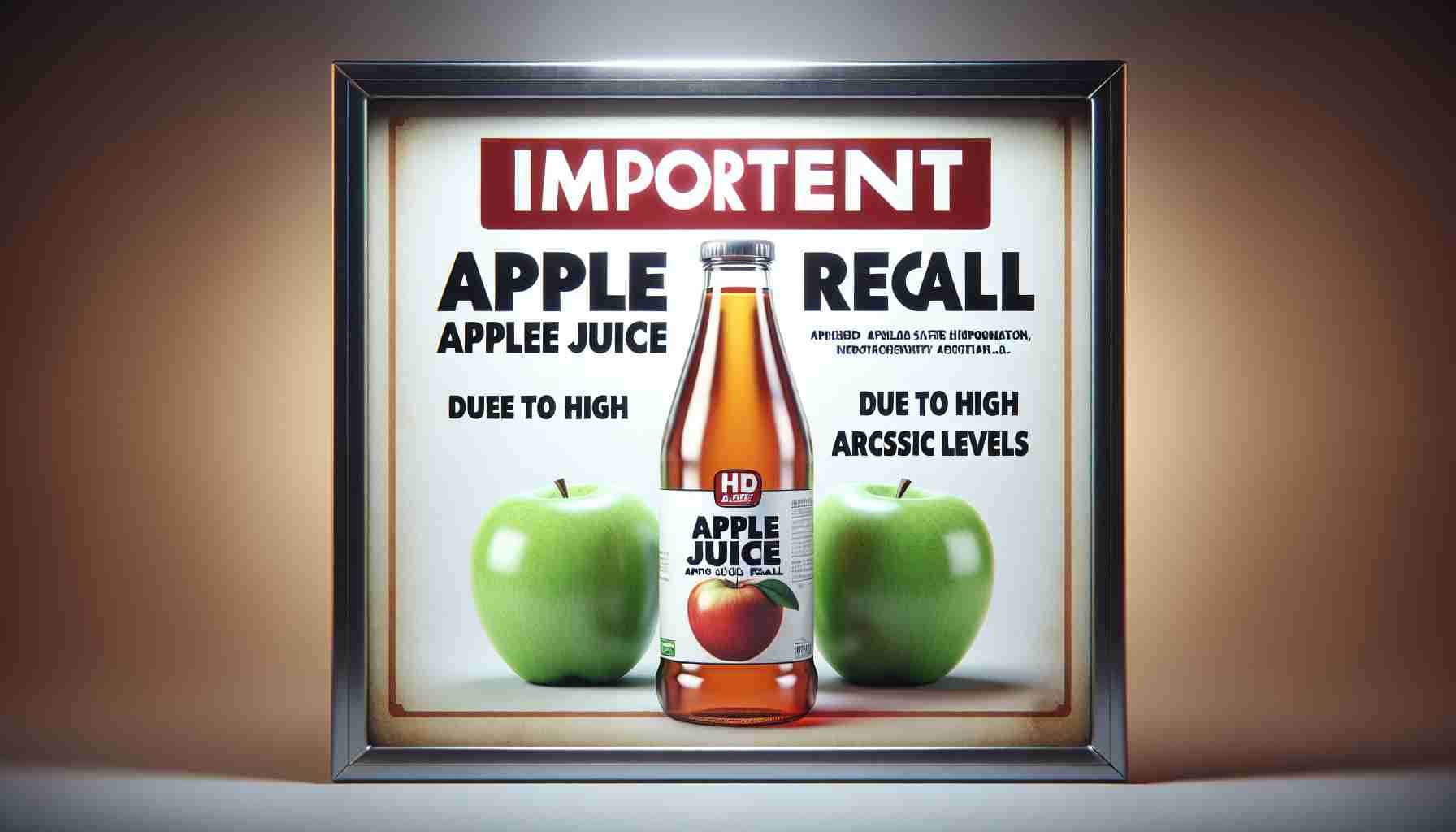Safety Notice for Consumers: Apple Juice Recall by Martinelli’s
Customers who frequently enjoy the refreshing taste of Martinelli’s Apple Juice should be informed of a pressing national recall. Specific bottles of the popular beverage, sold primarily in one-liter glass containers, have been identified as potentially containing harmful amounts of inorganic arsenic.
Inconsistent with Safe Consumption Standards
An alert has been raised after a testing initiative by Maryland officials detected arsenic levels surpassing the newly established FDA thresholds. These stricter guidelines — now set at a maximum of 10 parts per billion for inorganic arsenic in apple juice, matching those for drinking water – were implemented on June 1, 2023. Prior to this date, the permissible amount was more than double the current standard.
Identification of the Affected Product
The products in question display the “Best By” dates of either “09MAR2026” or “10MAR2026” prominently on the glass bottle, just above the label. Distribution of this juice occurred from March 13, 2023, until September 27, 2023, with the bulk of the items having been sent out before July 28, 2023.
No Related Health Complaints Reported So Far
It is important to note that there have been no reported illnesses or adverse reactions linked to the recalled juice to this point. Only the specified dates have been affected, leaving other Martinelli’s products safe for consumption.
Customers who are in possession of this particular apple juice or have queries related to the recall can reach out to Martinelli’s customer service at 1-800-662-1868. The recalled juice has been notably available at Publix Supermarkets throughout South Florida, prompting shoppers to examine their pantries closely.
Understanding the Dangers of Arsenic in Foods and Beverages
While the article on the Martinelli’s apple juice recall alerts consumers to the specific recall incident, it’s important to understand the broader implications of arsenic in foods and beverages. Arsenic is a naturally occurring element in the environment, but it can also be introduced through industrial processes. There are two forms of arsenic: organic, which is generally less harmful, and inorganic, which can be toxic and pose serious health risks when consumed in high amounts over time.
Key Questions and Answers
Q: Why is inorganic arsenic in apple juice a concern?
A: High levels of inorganic arsenic can lead to health issues such as skin lesions, developmental effects, cardiovascular diseases, neurotoxicity, and an increased risk of cancer. Limiting exposure, particularly for children who are more susceptible to the effects of toxins, is crucial for public health.
Q: How does arsenic get into apple juice?
A: Arsenic can enter the food supply from contaminated soil, water used during the growing process, or from arsenic-containing pesticides that were used historically on crops.
Challenges and Controversies
One key challenge is setting and enforcing regulations that adequately protect consumers from harmful substances like arsenic, while also being attainable for food producers. The recent change in FDA guidelines reflects an ongoing discussion about what constitutes a safe level of arsenic in food and beverages. This can cause controversy among stakeholders, with some industry representatives arguing that certain guidelines may be overly restrictive and difficult to achieve, while public health advocates push for even stricter standards.
Advantages and Disadvantages of the Recall
The obvious advantage of a recall like the one affecting Martinelli’s apple juice is the protection of public health. Removing potentially harmful products from the market helps to prevent the risk of illness related to arsenic exposure. However, on the downside, recalls can lead to financial loss for the company, damage its reputation, and create inconvenience for consumers.
For consumers looking for more resources or wishing to contact Martinelli’s directly regarding the recall, they could visit the company’s official website (a reliable URL would be required here, which I cannot provide due to the constraints on generating URLs).
In conclusion, while this recall serves as an immediate solution to the immediate issue with Martinelli’s apple juice, it also highlights the importance of vigilant food safety practices and the ongoing need for research to keep food supply standards up to date with the latest scientific understanding.
